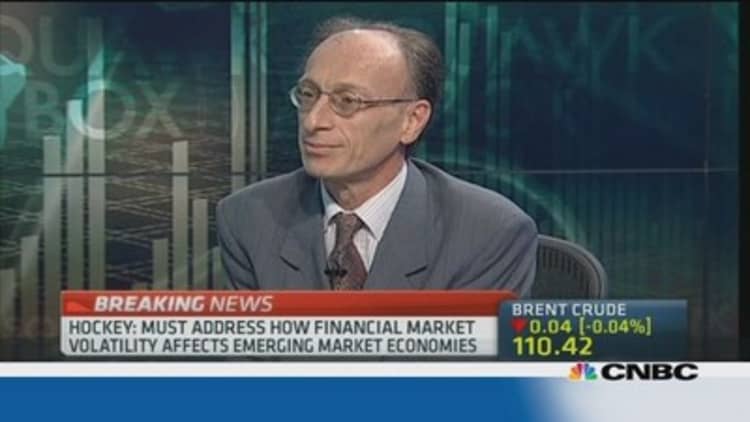Prospecting for oil in Brazil, manufacturing steel in Russia, erecting skyscrapers in China: Global bond investors have financed some of the grandest investment projects taken on by emerging economies in recent years.
(Read more: Emerging Asia's wealth to overtake US by 2015)
But as growth falters in a number of developing nations, economists and regulators have become increasingly worried about the consequences of this borrowing frenzy and the risk that the mutual funds and hedge funds that have largely replaced more stable commercial banks as global financiers might all decide to rush for exits at the same time.
"It's fair to say that the market got a little overexuberant," said Scott A. Mather, the head of global portfolio management at the mutual fund giant Pimco. "Many years of private sector credit growth have created serious vulnerabilities."
Analysts point out that compared to the Asian financial crisis in 1997, the borrowing binge this time is being funded largely by global bond investors and includes companies outside Asia as well. Unlike two decades ago, governments of developing countries have built up substantial foreign exchange reserves and are better able to weather any crisis.
(Read more: Election year for emerging markets: What to expect)

Still, fears remain that any panicky selling of Chinese, Russian or Brazilian bonds could turn into a financial rout. And over a longer stretch, the broader question is the potential effect from a closing of the once-welcoming global bond market to borrowers in regions of the world that have been driving growth in recent years.
The underlying problem, Mr. Mather said, is that bond investors with little or no experience in emerging markets piled in to pursue higher yields than they could get from safer government securities in the United States and elsewhere, snapping up the bond issues of companies with even riskier credit profiles.
More from the New York Times:
At Newark Airport, the Lights Are On, and They're Watching You
From India, Proof That a Trip to Mars Doesn't Have to Break the Bank
The Untouchable Profits of Fannie Mae and Freddie Mac
The stampede has led to a so-called mirage of liquidity in which many investors may have been misled into thinking that selling the securities will be as easy as buying them was.
"The liquidity is much worse now than before the crisis," Mr. Mather said.

